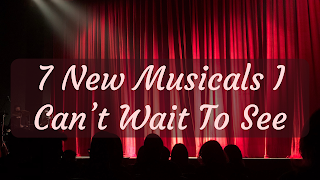Getting to Know the Editor: Isobelle Lans (Editor and Writer)
For any self-published authors, editing can be a scary thing. They will critique our word-lava baby and tell us how to make it better. Have you ever talked to an editor to see how their mind works and what made them want to become one?
I did!
Isobelle Lans is an editor whose platform is on Instagram. On her Instagram, she posts extremely helpful writing tips that are also on her blog. Follow Isobelle on her Instagram and check out her blog. She is an amazing editor, tip-giver, and businesswoman.
Isobelle Lans is a UK-based fiction editor who helps writers develop their writing skills to create stronger books. Through her editorial services, writing workbooks, free resources, and blog posts, Isobelle helps writers tackle some of the more difficult aspects of writing and revising. You can connect with her on Instagram, where she shares insights, tips, and encouragement for other writers. Or, you can visit her website here.
1. What made you want to become an editor?
I didn’t know that being an editor was possible until I was about fifteen years old. It seemed like a job that was too good to be true! At the time I was trying to decide what I wanted to do with myself after leaving school, and I wanted to pursue something creative and literary. I’d always been good at English in school, and I was that kid that loved to write assignments and went way over the word count. My dad was a screenwriter turned novelist and I used to edit his books and the books of his writing friends. One day he told me I was really good at editing and critiquing and that I should consider it for a job. So I did. And I haven’t looked back since.
2. Did you take any college/university courses to become one?
I didn’t go to university for my editing. I’d considered it, but I just couldn’t find the right course that was purely editing-focused. So, instead, I took a more practical approach. I completed work experience with a freelance editor in Australia, who took me under her wing and let me practice editing a few of her clients’ manuscripts. I then completed an online course through accredited English training providers the Chartered Institute of Editing and Proofreading (CIEP). After that course, I completed another focusing on the skills of developmental editing. I also undertook freelance work offered through the CIEP. I then acquired an Assistant Editor position at an indie publisher in London, which was invaluable. After that, I started my own business in 2019.
3. What about editing someone else’s work excites you?
There is so much I love! I love being a cheerleader for other writers. I think that’s probably the best part. Nothing is better than finding an unpublished book that you love and care about. I enjoy being a friend and mentor to my writers and helping them grow. It’s quite a special feeling. I also consider it such a privilege that I get to read these amazing books before anyone else does.
4. What about editing someone else’s work frightens you?
That’s a tricky one. I suppose I worry that the writer will reject my suggestions. The book is, of course, the writer’s, and the decisions are down to them, but when I feel so strongly about a book it can be difficult when a writer refuses to listen to my advice. It can make my job so much harder because I really am there to help.
5. Have you come across any book that cannot be edited, no matter what you do?
That’s a good question! Every book can be edited, but some are far more difficult than others! The biggest struggle is often the prose or the structure. They’re the two biggest reasons a book becomes difficult to work on because they’re such difficult things to learn as writers. Writing is a skill, and it can take years to hone. It is difficult as the editor to edit something that still needs a lot of work – and it can be a little disheartening at times – but an editor can only work with what they’ve got, they can’t rewrite the book.
I think sometimes that there is a misconception that the editor will make any book a 10/10 when really it depends on what level of writing the book is already at when we receive it. It’s not our place to do rewrites. I always think, though, if the writer didn’t get it edited then how will they get better? That’s my opinion, at least.
6. Do you think you’ve gained more clients through your writing tips?
I’ve never really thought about this, but yes, I think I have. Social media has never been my forte, so I find it quite ironic now that I get so many clients through Instagram. It took me a while to find my niche and figure out who my audience was and what kind of content I wanted to share, but people always seemed so responsive when I shared writing tips, and I love knowing that I’m helping them, even if I’ll never work with them one-to-one. So, yes, I do think the writing tips have helped a great deal.
7. What is your favorite writing advice to share on your Instagram?
That’s a tough one! I think I have two favourites. The first is the motivational kind. Writing can feel so solitary sometimes that we forget we have so many other people out there going through the same thing. We often feel like every hurdle and mental block separates us from everyone else, but the truth is every writer has experienced these doubts and slumps before as well, and I like to remind writers that they’re not alone.
My other favourite is the more actionable feedback of storytelling techniques. I love helping people figure out how to implement something – whether it’s internal monologue, “show” vs “tell”, or writing strong descriptions. I love seeing that “oh, I get it” moment from people when they realize how to improve something they’ve been struggling with.
8. What is your favorite subject to discuss on your blog?
So many! I think my favourite topic of discussion would probably be about characters. There is so much to talk about when it comes to characters – their goal, motivation, voice, appearance – I could go on! There is so much to explore and discover about our characters, and they truly are the backbone of any story. You can never underestimate their significance.
9. What made you want to become a writer?
You know, I can’t remember a moment when I thought “right, I want to be a writer”. I know lots of people have that, but mine wasn’t so clear-cut. I remember when I was a child, about eight, I had a story idea about a boy who had an accident that left him with the ability to see ghosts. I never finished that book, but I discovered my passion for writing. Since then, I just kept coming up with story ideas. I wrote all through my childhood and teenage years. I loved the freedom of it, and I love who I got to be in my books. I can’t imagine ever not writing. It’s a huge part of who I am.
10. What is your advice for writers who are unsure about their manuscript after the first draft?
My advice is to keep going! Once you finish your first draft read through it again and self-edit. After that, reach out to friends, family, and beta readers. Have as many people as possible read your book so you can get as much feedback as you can. Use their suggestions to help you with your next round of rewrites and revisions. Then once that’s done, speak to an editor about getting a developmental edit (also known as a structural or substantive edit). Editors love to talk about books, and we’re not as scary as we might seem! We’ll always be able to point you in the right direction. Just don’t give up on your ideas! Writing a book isn’t easy, and having doubts and slumps is totally normal.
What’s important is that you just keep going.





Comments